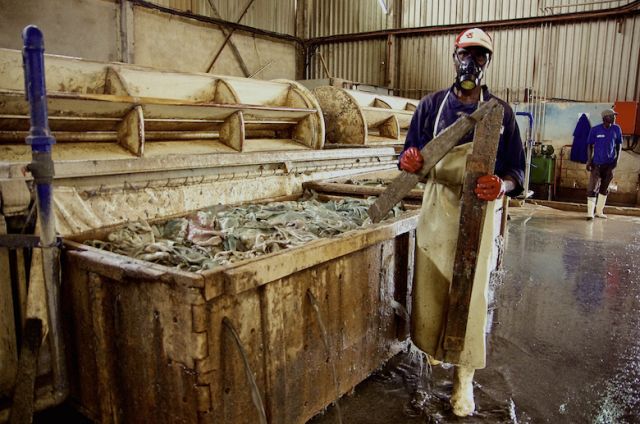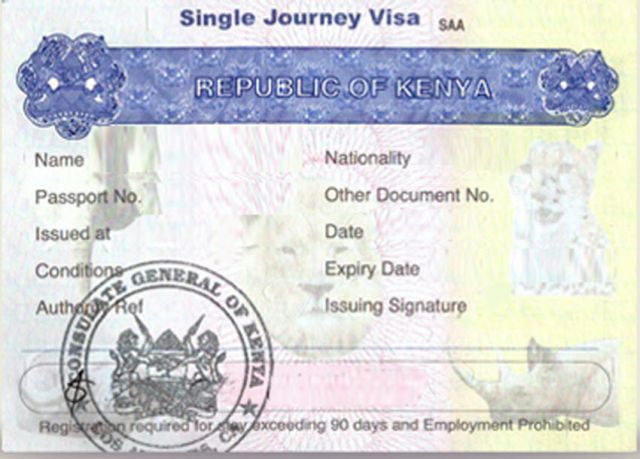
IRONY
08-11-2022 by Freddie del Curatolo

The suitcase on the bed is, yes, that of a long journey, as Julio Iglesias sang, but for those who make it, it is a known, periodic, at the very least annual trip.
So it would be an almost empty suitcase, not only because some clothing and items are already at the destination, but because even the clothes to be brought are mostly light stuff, from warm and informal places.
Places where two changes of shorts and T-shirt (or cotton dress for women) and flip-flops for the day and a pair of "longs" and summer booties for the evening may suffice.
Places where there would be no (conditional obligatory) need for ostentation, a place where, as Article 3 of the constitution of Mal d'Africa states, "one does not need anything that is not within oneself."
Yet mysteriously that suitcase is not only overstuffed, but often not even one.
If the airline landing you in Mombasa provides 23+23 kilograms of luggage, rest assured you will have 24+23.5. And if there is room for a third package, there will be no shortage of gifts and "trading stones" with friends, exotic partners or beach boys.
The question arises like mchicha in the fields: why are those suitcases so full and heavy?
Basically because we Italians cannot give up the pleasures of food, of "our" food, and because those who frequent the Kenyan coast for a few months a year, the colder ones, do not want to give up their good habits but much less spend more than they have to in order to buy goods defined as "basic necessities" paying the inevitable duty of finding expensive imported products that cost at least twice as much as in Italy.
So in a 23-kilogram suitcase we find: 12 packs of Lavazza gold-quality coffee (Kenya is the third largest coffee exporter in the world, its mocha coffee is great but alas it costs a bit more, partly because it is often still produced in an artisanal way), fifteen half-kilo packs of De Cecco spaghetti (total savings 1. 80 per pack, so a whopping 27 euros in total that can be spent during a beach party!), two kilograms of grana padano cheese (indispensable, if you bring spaghetti...and luckily the tomatoes in Kenya are good...of course, though, the San Marzano in a jar...). We continue with a 5-liter can of olive oil and some other comfort items such as a couple of bottles of wine, Taggiasche olives, Mulino Bianco cookies (essential! Would you want to put that with the too wholesome cookies from the Kenyan company Fayaz, which has been in business in Mombasa since 1890 and can also be found in Malindi and Watamu for just under a euro a packet?) and more.
Another question that arises like pineapples in Magarini: but is it possible to bring all this Italian goodness to an African country like Kenya, for a tourist entering precisely on a tourist visa?
The answer is immediate: PLEASE DON'T!
If you are a non-resident and you want to import along with your person not only food items, but also non-food items, such as an impact drill (I swear, we have cases...), a 12-roll pack of "Scottex Casa" (Sic!) or a set of sunscreens, mosquito repellents and cosmetics to open a little store, you have to pay import taxes. Exactly as those who have a license and a company to do the import business do. It seems strange to some, exactly as those who rent their house in Kenya (not reported in Italian income) putting it on Air BnB should also pay them.
No, Italians hardly absorb the word "taxes," let alone what they want to know about "do-it-yourself" imports. Not least because in Mombasa, it seems, there is a much more efficient, direct and humane method of getting around this problem. One of the pages of your passport, at the baggage check, power of Africa, will magically turn into a 1,000-shilling bill and slide into the presence of the attendant ready to impose the tax on your basic necessities, without which your stay at the equator would not be the same!
Simple, like kicking a can (of San Marzano), would have sung the forgettable Gianni Togni.
But it is just as simple that some agents, upon exiting the airport, know or see the passport bill scene and take advantage of it, threatening to turn you in for another precious page of your document.
What villains these Kenyans are! What profiteers! Ready to make life difficult for you for a little piece of grana padano (not even if it was parmigiano reggiano, plus I bought it at Eurospin...) and two packs of spaghetti (vermicelli to be precise). The resulting wave of veiled complaints of racism on social media are a whole program.
And in the end it is what bothers the most, at least to the writer. The nerve of those who not only try to take advantage of others as if they were in a third world half a century ago, with Zigozago wizards with alarm clocks on their necks that read 11 p.m., but who the moment the Zigozagos respond with the same coin (corruption is a game of two, it takes a corrupt and a corruptor to play, but woe if the roles are reversed during the match...) tap their fingers on the keyboard as children do with their feet on the ground.
Who knows why these things happen only to Italians?
Could it be because Germans, Brits and Northerners don't eat pasta and drink that Nescafé slop?
Those who have nothing to hide need no more pages in their passports.
To think that Kenya is no longer an easy and happy destination because you cannot introduce pasta and cheese at will, seems a bit reductive towards a country so extraordinarily complex in all its meanings. And to consider Kenyan authorities disreputable because instead of taking you to the office and seizing everything you are trying to import that you do not have an invoice for, they ask you for an extra page of that passport you have reinforced for the occasion, seems even less honest.
In recent days the immigration office at Mombasa airport wanted to arrest a compatriot armed with a 7-kilogram leg of ham with all its fine bone.
The man justified himself by saying he was going to distribute it to a poor people's village. No dice, even in the face of a dozen or so passport pages fluttering through the air, the San Daniele was seized.
It is not so much sorry for him as for the community of that village who had taken up a collection for the occasion, buying a brand new slicer, and who had to eat Voi melons bought at the supermarket in Malindi, with smoked fish from the Sabaki River...
RULES
by redazione

Among the many precautions and things to know before facing a vacation or a period of stay in Kenya, there...
COMMERCE
by redazione

Italy, like other European markets, may also be affected by the lawsuit over the export of ...

Electronic Passport from 1 September for Kenyan citizens.
The Kenya Immigration Office has announced that at the end of this month it will no longer be possible to apply for a passport valid for expatriation with the methods used to...
VISTI
by redazione

The Kenya Immigration Office has decided to facilitate foreign citizens who are expiring any visa or permit and...

As many of you will have come to appreciate over the years (and we will soon be 15...) Malindikenya.net is...
SHOW
by redazione

The satire and irony of Freddie del Curatolo and the musician and his sidekick Marco "Sbringo" Bigi...
VISTI
by redazione

Since the period of pandemic restrictions, with the reopening of tourism from Italy to Kenya, some of...
EVENTI
by redazione

One last show to close the season and to hand over to the Italian non-profit organisation Karibuni the fruits...
NEWS
by redazione

Foreign citizens who since the beginning of the pandemic emergency in Kenya...

Thirteen major hotel companies will open in Kenya over the next five years.
According to an "Outlook Hotel" report, published by the PwC consulting agency, by 2021 the country, and most of all Nairobi, will have 2400 new rooms.
Sheraton, Ramada,...
NEWS
by Freddie del Curatolo

Rather than nothing, better rather, said the Milanese cabaret artist of the last century Walter Valdi, who also wondered...